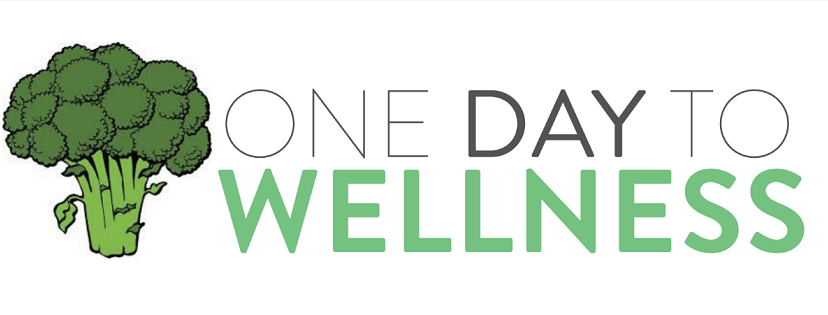Welcome to the 25 Posts for Behavioral Change social media bundle.
Convince your followers of your wellness expertise with these beautiful, royalty-free photos; encourage healthy habits with the recommended captions. We recommend using these graphics as part of your social media strategy, private group, newsletter, or opt-in service.
If for some odd reason, you cannot save the photo from this page, please visit this Google Drive Folder.

Before you can improve your time management skills, you have to know your current three life goals. You can't "manage" time without a set of priorities. You can't have set priorities without an end game to work towards. What are your current three goals?

Create a list all of your obligations, commitments, and responsibilities. Rate the level of importance, happiness fulfillment, and goal alignment (with your three goals from yesterday) of the activity.

Ask yourself: is your schedule in alignment with your goals or are you spending time on tasks that take away from your goals?
Is there a small task you could add that is more in line with your goals? If the action that takes up the most of your time is not ranked high in your alignment column, then it is time to change.
It is time to ditch or add obligations, commitments, and responsibilities. If something is not ranked high in goal alignment, it is time for it to go.

In the morning, prioritize the three MUST be done actions for that day. Do those three things first. Focus on only 1 of those tasks at a time, and do not attempt to multi-task all of them at once. If one of the important aspects of your day is an event later in the afternoon, the schedule a barrier around the event to ensure you are not late.

We should always practice gratitude. Instead of focusing on the items you did not get done, making a list of what you did accomplish throughout the day! This may show you that you have done more than you think.
Be sure to thank yourself for jobs well done.

Vegetables...The things you should eat the most of during the day! Often, we think we are hungry, but we really are bored or thirsty; vegetables can help you decipher! Think you are hungry? Great, then eat vegetables like carrots, snap peas, celery, red peppers or cucumbers! Oh, you don't want a carrot? Then you aren't hungry, you are probably just bored.

Fruits are full of antioxidants and are great for your health. Eating a "rainbow" of fruits on a weekly basis can maximize the nutritional benefits of this food group.
That's not all of the benefits of eating fruits! Need a pick-me-up? Grab some citrus. Try kicking your mental game into gear with berries. Experiment to find what fruits can curb your sugar cravings.
Have you eaten something purple lately?

Protein is more than just animal meat. How about nuts, seeds, beans, and legumes (peas and lentils)? True, protein helps you feel full after a meal, but your focus should be on your vegetables first. We have to have a mental shift from eating for pure pleasure to eating for fuel. If we are eating to best fuel our bodies, then produce should come first since they are the powerhouse of nutrition and antioxidants; then, we can add protein to our plates.
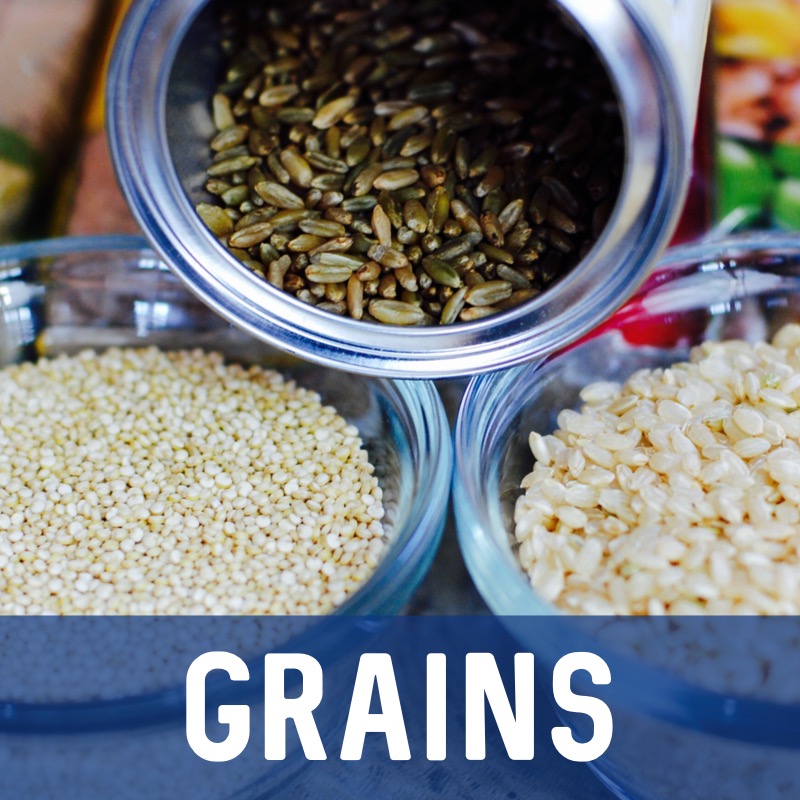
What is a grain anyway? Grains are not breads, cookies, or crackers. Grains are plant products such as oats, quinoa, rice, and barley.
Grains are good for you when eaten in the correct portion. Make it a goal to limit your choices to unprocessed grains and the number of your daily servings. Eat those servings at breakfast and lunch and use them as energy sources for your day.

Food is fuel. Typically, you fuel your car to go long distances correct? Sugary junk food is the equivalent of filling up your gas tank with 2 gallons. Will you get fuel? Sure! Will it last a short period of time and then crash your car again? Yes! If you ate a whole-foods based meal, your tank would fill entirely, allowing you to go the longer distances.

Create a relaxing ritual before bedtime. Stress not only makes you miserable, it wreaks havoc on your sleep. Develop some kind of pre-sleep ritual to break the connection between all the day’s stress and bedtime. These rituals can be as short as 10 minutes or as long as an hour. Think of including reading, lavender baths/showers, yoga, foam rolling, and meditating.

Plan ahead. If you know you need eight hours of sleep to feel your best and you know you have to be awake by 6 AM, then you can calculate that you need to be asleep around 10 PM. This does not mean starting your pre-bedtime ritual at 10, but proactively planning ahead and creating a schedule that fits your patterns.
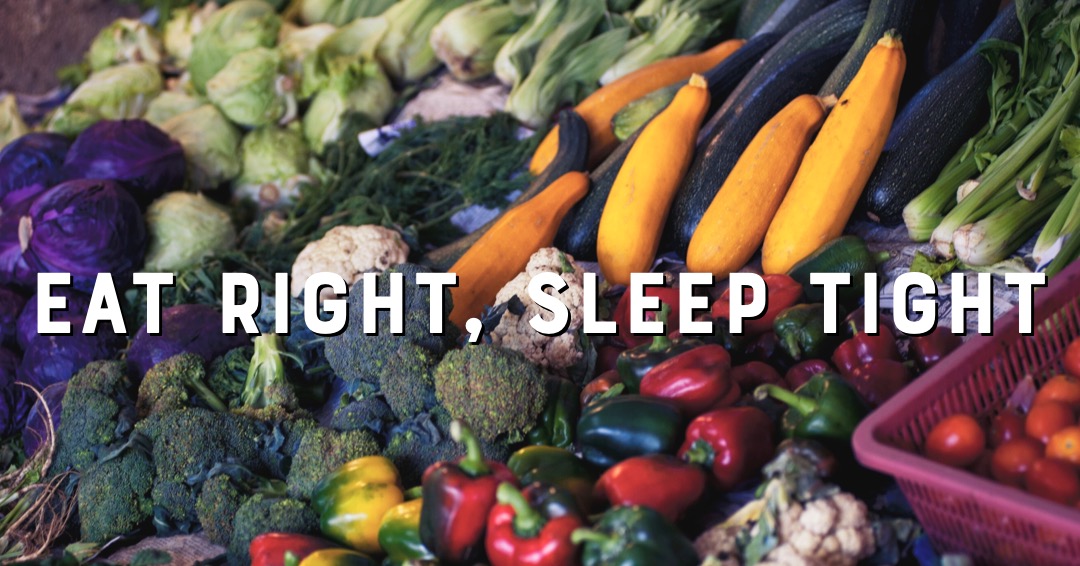
Eat right, sleep tight. Try not to go to bed hungry, but avoid heavy meals before bedtime. An over-full belly can keep you up. Some foods that may help promote sleep include pumpkin, artichokes, avocados, almonds, bok choy, peaches, walnuts, apricots, oats, asparagus, potatoes, buckwheat, and bananas.

Your bed is sacred. Avoid watching TV, eating, and discussing emotional issues in bed. The bed should be used for sleep and sex only. If not, you can end up associating the bed with distracting activities that could make it difficult for you to fall asleep.
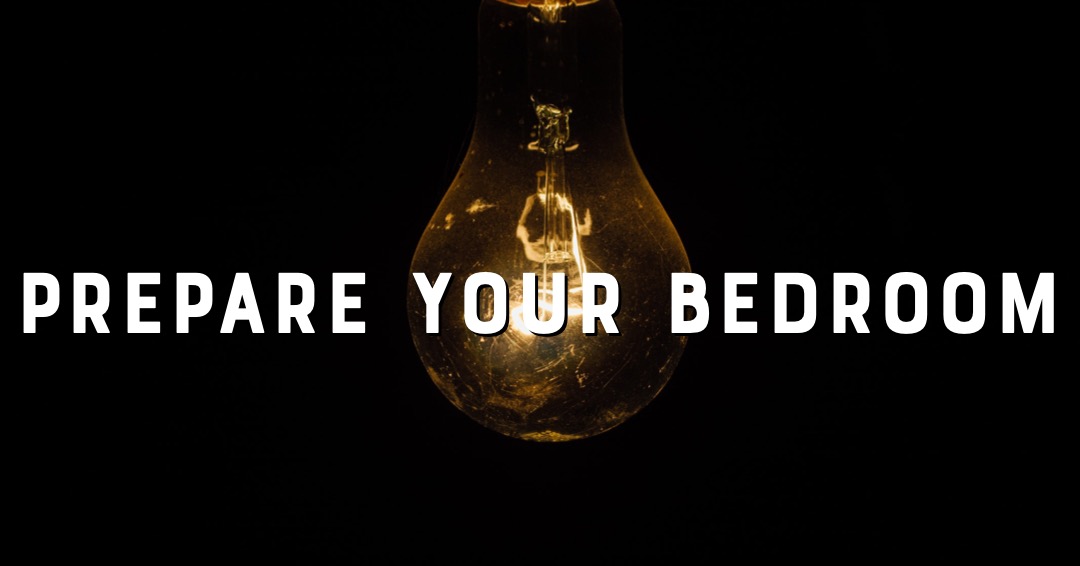
Prepare your bedroom. Keep your bedroom quiet, dark, and comfortable. For many people, even the slightest noise or light can disturb sleep like the purring of a cat or the light from your laptop or TV. Use earplugs, window blinds or curtains, and an electric blanket or air conditioner to create an ideal sleep environment. Keep a journal so you can experiment to find what works best for you.
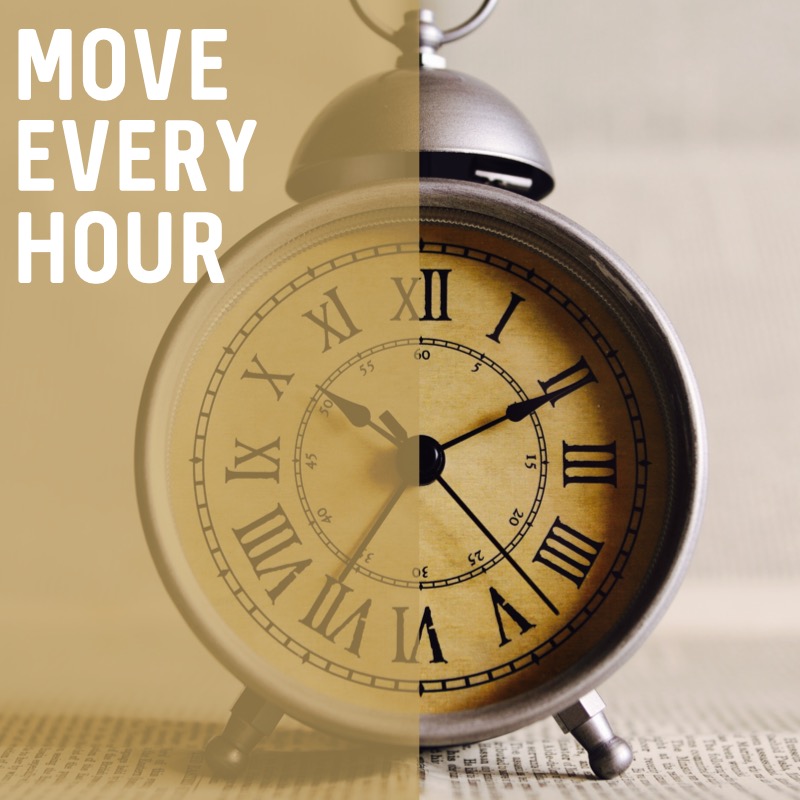
If you've been sitting for an hour, you've been sitting too long; Set a timer on your phone or computer to remind yourself to move every hour. Stand up and stretch. Do some jumping jacks. Squat 10 times. Walk around your office. Do something every hour.
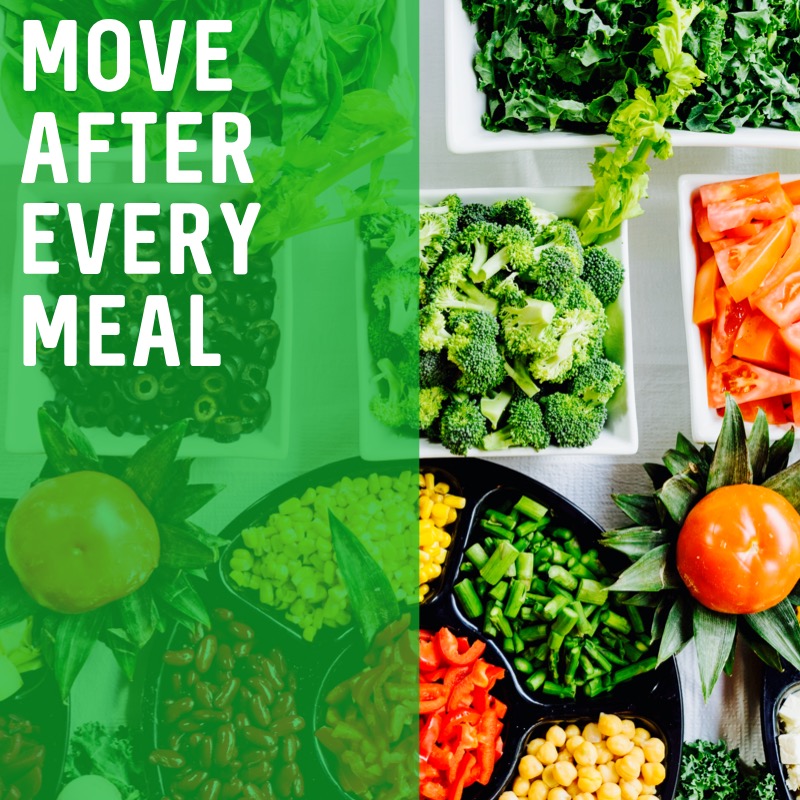
After every meal, take a walk. Even if it is around the outside your house 10x, around the office block, or to the end of your street and back, get outside and walk. This will help you get more movement into your day but also aid in digestion.

Try to incorporate more movement into your daily "chores." For example, while cooking dinner, turn on dance music instead of the TV and groove while cooking. Don't carry all of your grocery bags into the house at once; Take multiple trips to increase your daily steps. Walk around your bedroom while brushing your teeth. Remember that every movement matters.

Move first thing in the morning. When we introduce a physical activity in the morning, even something as simple as stretches, we are increasing the oxygen levels in the blood, generate more blood flow to the brain, raising your metabolism, and opening the mind’s door to mindfulness about moving throughout the day.

Skip the lunch date and go for a walk. Grab the dog and circle the block a few times. Ask your kids to build an obstacle course out of exercise equipment with you. Movement is always more fun when your loved ones are involved. Grab a partner and do something active together.

Making the mind shift to meditate every day will help you center all other aspects of your wellness practice. Meditation focuses the mind to do its work. There is no right or wrong way to meditate. Meditation is short or long, still or moving, quiet or guided. Whatever meditation means to you, your opinion is not wrong. The act of calming the mind will enhance every part of your being, no matter the method you practice.

Start with committing to only five-minutes of meditation; this can be a self-guided journey, a mindful walk, or even sitting in your car after work. As you progress, your mind will notice the benefits of your practice. Then you will have more reason to commit to more time.

Sure...try an app! There are a lot of guided meditation apps available like BUDDHIFY, Headspace, 3-Minute Meditation, and more.

Behavioral change research has shown that setting and maintaining a schedule is essential for sticking with your wellness plan. Therefore, you should schedule the time of day you wish to begin your meditation practice. When you don’t seem to have the time, that is precisely when you need to make the time. "The quality of our life depends on the quality of our mind," writes Sri Sri Ravi Shankar

Quieting your mind takes a lot of practice and forgiveness. If you fall away from your habits, forgive yourself and reset. Wellness is a journey, not a destination. As long as you are moving forward, you are practicing meditation correctly.
